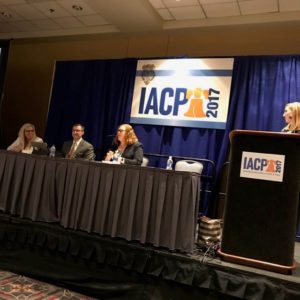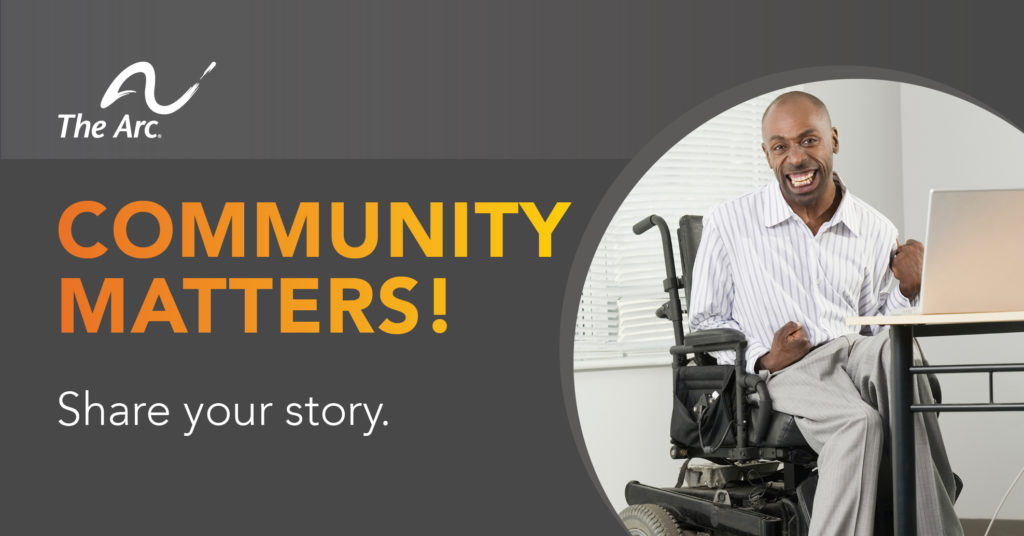Why the Tax Cuts and Jobs Act Is Bad for People With Disabilities
Legislative Timeline
House of Representatives
- Nov. 16: House passed its version of the Tax Cuts and Jobs Act
Senate
- Week of Nov. 27: Senate plans to vote on its version of the Tax Cuts and Jobs Act
- 51 votes are needed to pass the legislation
Background
The Arc’s longstanding position on tax policy is that it should raise sufficient revenues to finance essential programs that help people with disabilities to live and work in the community. The Arc also supports tax policy that is fair and reduces income inequality; people with disabilities are twice as likely to experience poverty.
Unfortunately, both the House and Senate versions of the Tax Cuts and Jobs Act (H.R. 1, Senate Version) fail to meet either standard. Both bills would dramatically reduce revenue that the federal government uses to pay for critical programs. As the tax revenue decreases it will likely build pressure to cut Medicaid, Medicare, Supplemental Security Income, and other critical programs for people with disabilities to make up for lost revenue.
Why is the Tax Cuts and Jobs Act Harmful?
 The House and Senate bills reduce federal revenue by about $1.5 trillion over 10 years. Members of Congress have acknowledged that passing these tax cuts will make it easier to justify spending cuts down the road. The Congressional Budget Office (CBO) also notes that automatic spending cuts may be triggered if Congress does not act to prevent them. These automatic cuts could mean a $25 billion dollar cut to Medicare in 2018. Automatic spending cuts could also slash funds that go to states to operate critical programs such as the Vocational Rehabilitation state grant program and the Social Services Block Grant.
The House and Senate bills reduce federal revenue by about $1.5 trillion over 10 years. Members of Congress have acknowledged that passing these tax cuts will make it easier to justify spending cuts down the road. The Congressional Budget Office (CBO) also notes that automatic spending cuts may be triggered if Congress does not act to prevent them. These automatic cuts could mean a $25 billion dollar cut to Medicare in 2018. Automatic spending cuts could also slash funds that go to states to operate critical programs such as the Vocational Rehabilitation state grant program and the Social Services Block Grant.
How Do the House and Senate Bills Compare?
The Arc opposes both the House and Senate bills. The chart below is meant to explain the differences between the two bills.
| In House Bill | In Senate Bill | |
| Repeal of Individual Mandate for health insurance coverage. CBO estimates 13+ million fewer people with health insurance andpremium hikes of 10% in the insurance marketplace. The individual mandate helps ensure that enough healthy people purchase health insurance to keep insurance affordable. | x | |
| Repeal of the medical expense deduction. Nearly 9 million filers claim this deduction for medical care expenses that exceed 10% of an individual’s or family’s adjusted gross income. It offsets some of the high out of pocket medical expenses that some people with disabilities incur, such as high cost prescription drugs, long term physical and occupational therapies, wheelchairs, prosthetics, and long term supports and services. | x | |
| Repeal of the Disabled Access Credit (DATC). The DATC assists small businesses in meeting obligations under the Americans with Disabilities Act (ADA). It allows small businesses (with < 31 employees and gross receipts < $1 million a year) to claim a tax credit. The credit provides 50% of eligible expenditures between $250 and $10,000 for a maximum of $5,000. | x | |
| Repeal of the Work Opportunity Tax Credit (WOTC). WOTC is available to employers for hiring individuals from certain target groups, including people with disabilities. The WOTC for people with disabilities provides a credit for up to 40% of the first $6,000 in wages, for a maximum of $2,400 for SSI beneficiaries but up to $9,600 for certain disabled veterans. | x | |
| Reduce affordable housing production under the Low-Income Housing Tax Credit (LIHTC) program. LIHTC funds the creation of affordable housing across the country. Both the House and Senate bills would make changes to the LIHTC program that would reduce the number of affordable housing units produced. Changes proposed by the Senate bill are estimated to reduce units produced by roughly 300,000 over the next 10 years. The House bill has proposed even more dramatic changes, estimated to reduce units produced by nearly 1 million over the next 10 years. | x | x |
| Reducing incentives for charitable deductions. Raising the standard deduction could reduce the number of taxpayers who itemize deductions – including charitable donations – from the current 30% to 5%. Combined with a decrease in the top marginal tax rate, the disincentive to itemize would reduce charitable giving by $4.9 billion to $13.1 billion annually. Many of the providers of services to people with disabilities are non profits that rely on charitable giving. | x | x |
| Repeal or limit Orphan Drugs Credit. Businesses can receive this credit for clinical testing expenses for certain drugs for rare diseases or conditions. It is estimated that if the orphan drug credit were repealed one-third fewer drugs addressing rare diseases would be developed in the future. | x Repeal |
x Limit |
| Creation of an inadequate paid leave tax credit. The Senate bill would create a two-year employer tax credit for paid family and medical leave expenses, modeled after the Strong Families Act. As structured, this tax credit is likely to primarily subsidize companies that already offer paid leave or that would have chosen to offer new or expanded paid leave benefits without a tax credit. This means that, in addition to losing revenue, the proposal would do little to reduce current gaps in access to paid leave that particularly impact workers with disabilities and their families. | x |





 This year’s Congressional budget process is particularly important for people with disabilities and their families. The recently-passed House and Senate fiscal year 2018 budgets set overall spending and revenue targets for the next 10 years. But beyond this basic function, Congressional budget writers have been clear that an underlying goal of the 2018 budget is to set the stage for a massive tax cut bill. The Arc is concerned that significant loss of federal revenue will result in cuts to programs for people with disabilities
This year’s Congressional budget process is particularly important for people with disabilities and their families. The recently-passed House and Senate fiscal year 2018 budgets set overall spending and revenue targets for the next 10 years. But beyond this basic function, Congressional budget writers have been clear that an underlying goal of the 2018 budget is to set the stage for a massive tax cut bill. The Arc is concerned that significant loss of federal revenue will result in cuts to programs for people with disabilities

 Boston University College of Health and Rehabilitation Sciences: Sargent College is an institution of higher education which fosters critical and innovative thinking to best serve the health care needs of society through academics, research, and clinical practice. As reported by U.S. News and World Report, its graduate programs in Speech-Language Pathology and Physical Therapy rank in the top 6% of programs while Occupational Therapy is #1 in the nation. The College has more than 25 on-campus research facilities and clinical centers and offers degree programs in occupational therapy, physical therapy, speech, language and hearing sciences, health science, athletic training, human physiology, behavior and health, and nutrition. For more information, visit
Boston University College of Health and Rehabilitation Sciences: Sargent College is an institution of higher education which fosters critical and innovative thinking to best serve the health care needs of society through academics, research, and clinical practice. As reported by U.S. News and World Report, its graduate programs in Speech-Language Pathology and Physical Therapy rank in the top 6% of programs while Occupational Therapy is #1 in the nation. The College has more than 25 on-campus research facilities and clinical centers and offers degree programs in occupational therapy, physical therapy, speech, language and hearing sciences, health science, athletic training, human physiology, behavior and health, and nutrition. For more information, visit 





